All for better health; Market survey, community diagnosis and insights on prevalent diseases in Obukpa Community, Enugu State, Nigeria.
For a while now, I have been doing my medical clinical posting in a village where our hospital has an outpost, 45 of us student doctors actually.
It was an avenue for us to look into everything about the health of the villagers (how they know the symptoms of the disease they're treating, what they treat with and if they go to the hospital at all or just go for very severe cases when their self medication fails)
We kept looking for a way to get to as many villagers input as possible and finally came up with a questionnaire.
A questionnaire could be defined as;
a set of printed or written questions with a choice of answers, devised for the purposes of a survey or statistical study.
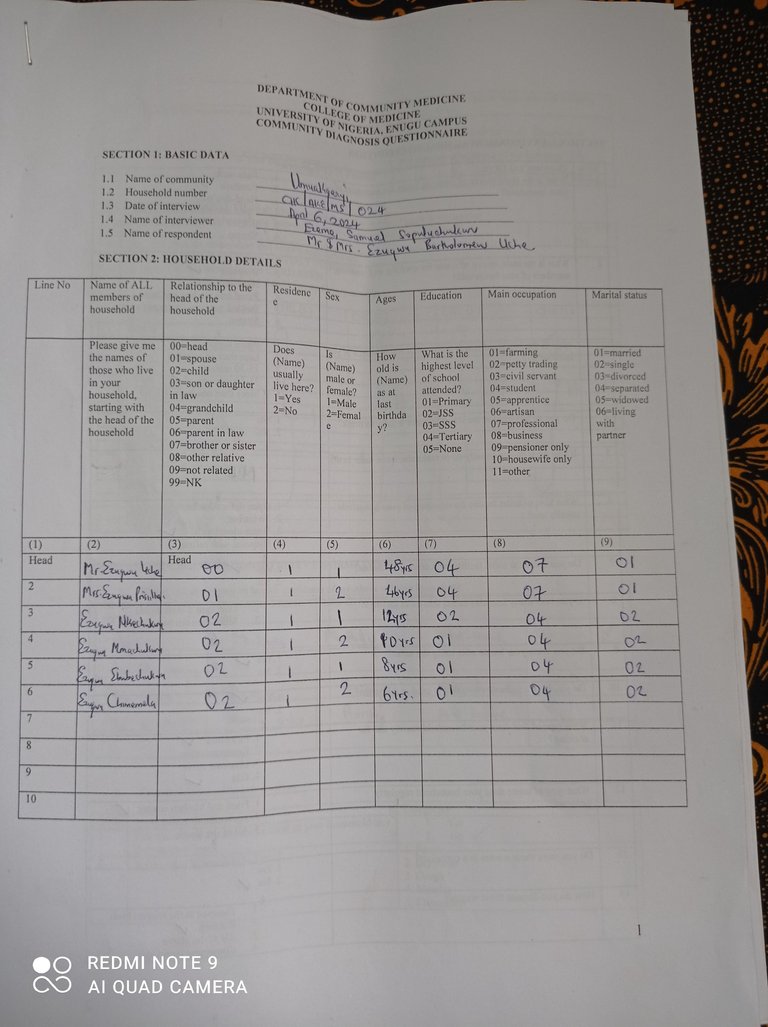
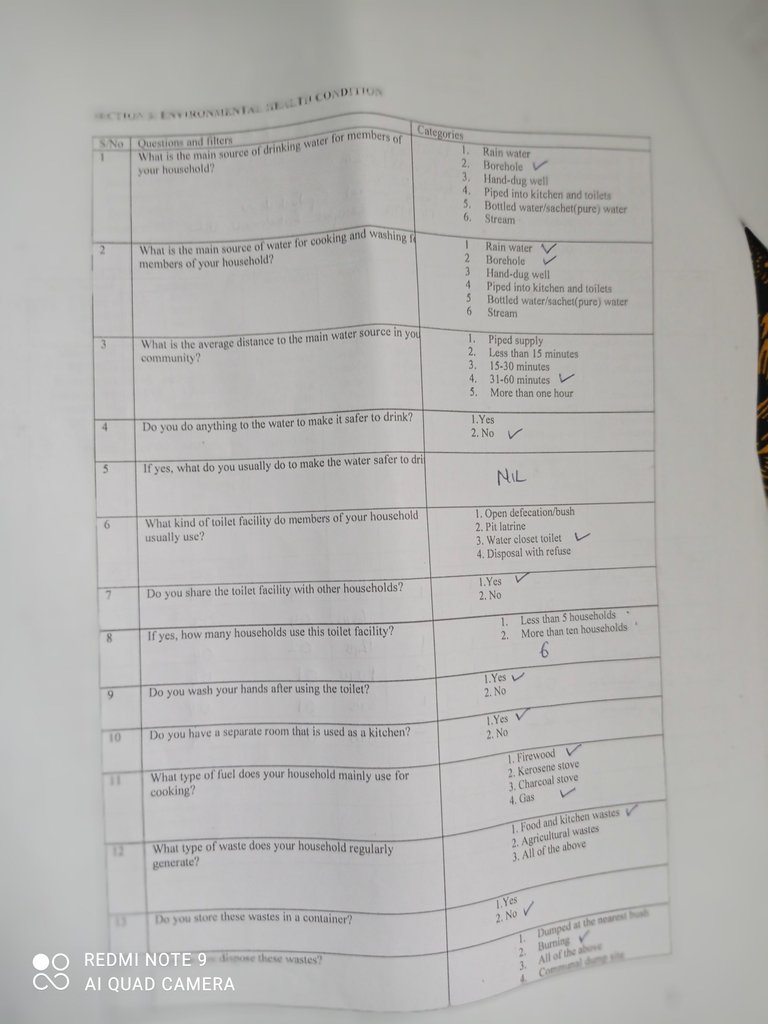
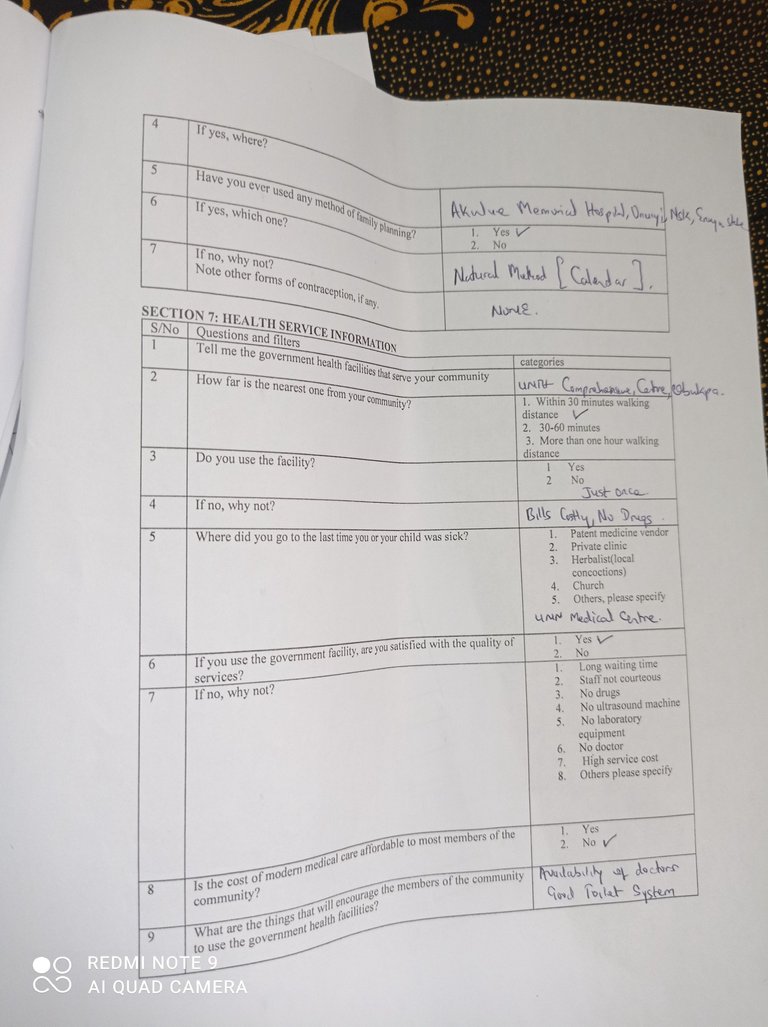
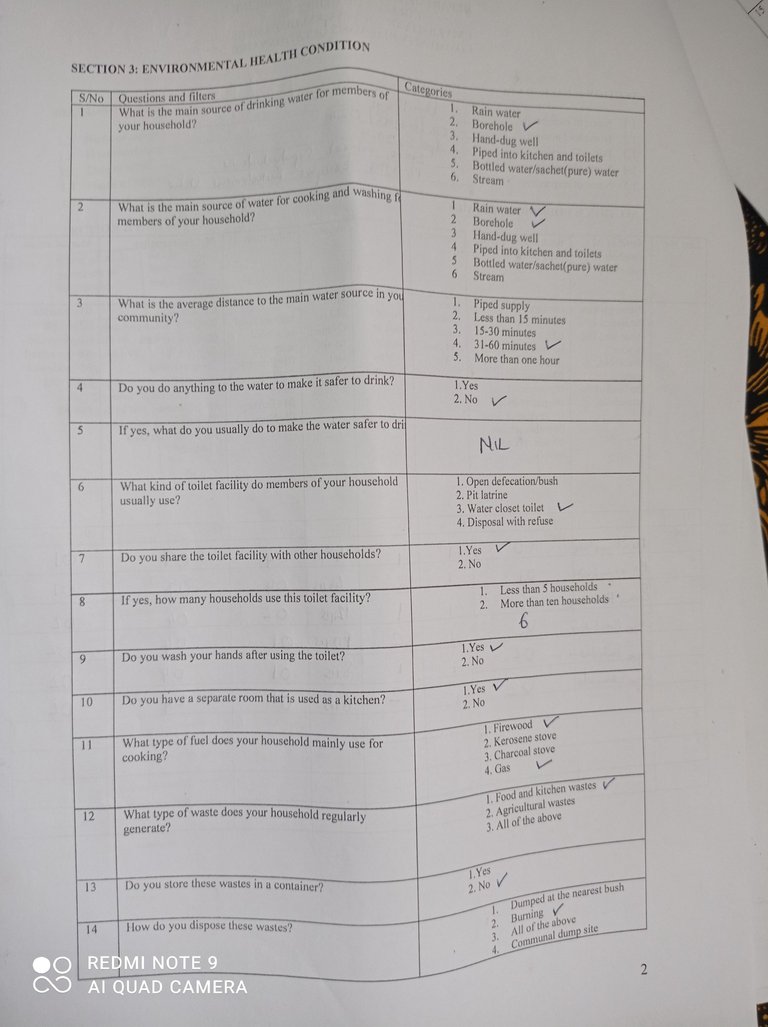
In our questionnaire were questions like;
What was the source of drinking and cooking water in this villages?
How refuse disposable is done?
If they sleep under insecticide treated mosquito nets?
The common illnesses they suffer on the village?
And many others.
The 45 of us were assigned 3 households each and we were able to get inputs of 130 responses because some families weren't around.
Market Survey
Since thousands of disease we suffer always came from what we eat or drink, we decided it was good to visit the villagers in their market day and ask them some health- related questions such as:
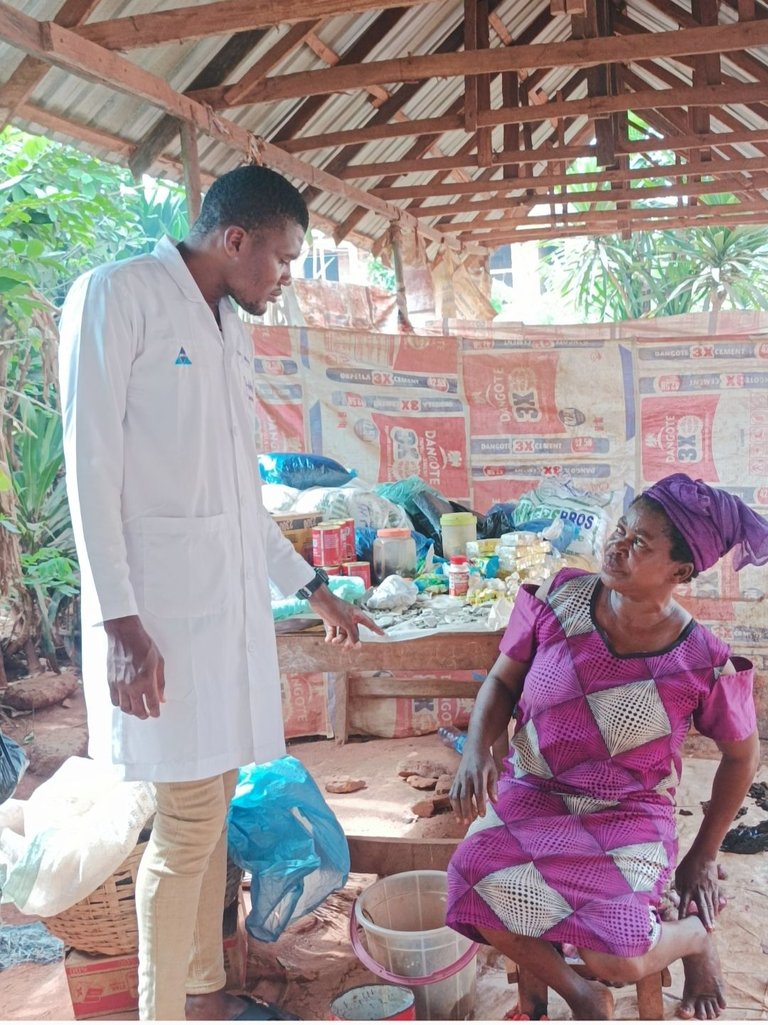
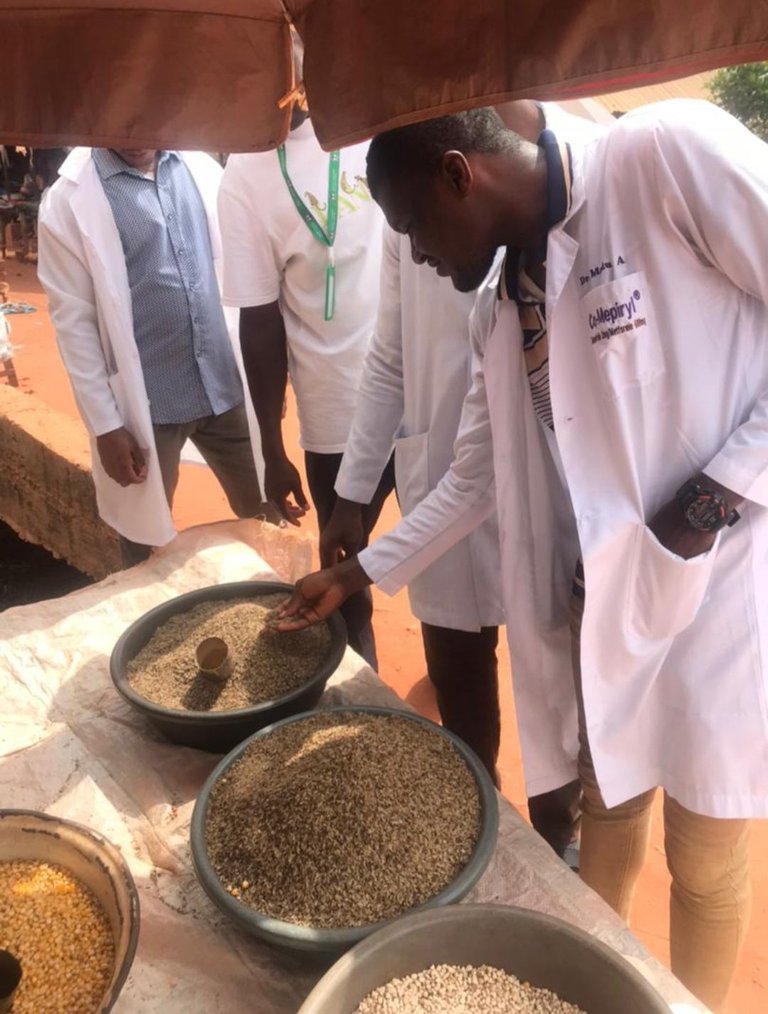
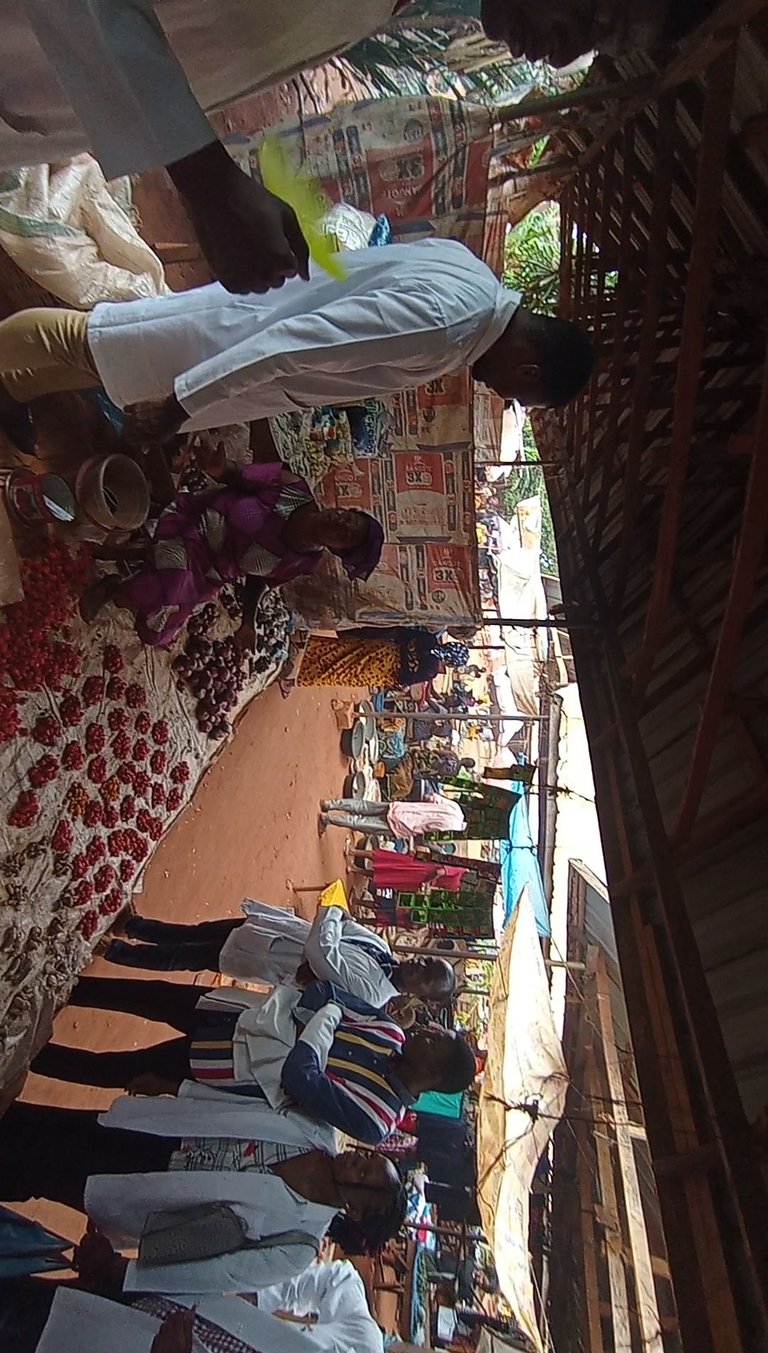
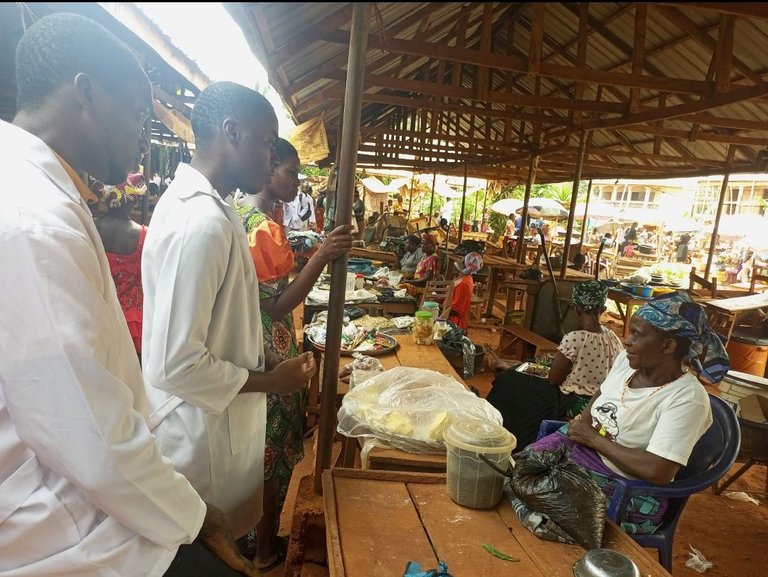
How they get the products they sell?
How they preserve them?
How they produce them if it was what they produced themselves?
How they prevent them from rodents?
The villagers were very cooperative after the village head introduced our mission to them and we were able to get exactly all we wanted.
Community Diagnosis
Having interacted with the villagers, we collated all the data and then discovered from their responses what the most common diseases over here were;
- Malaria
- Typhoid fever
- Sore throat
- Diarrhea
- Maternal mortality
I wasn't surprised by what we discovered because it's almost the same for all the Nigerian states not just villages.
To complete this task, we needed to call the villagers together and educate them better especially on these prevalent diseases they suffer.
We went to the Igwe's (King's) palace to get permission from him and he was very happy hearing about what we want to do, he sent out his town crier who announced it through the ends of these villages.
Insights on these prevalent diseases
The D-day finally reached and we were happy by the number of villagers that were in attendance and we began:
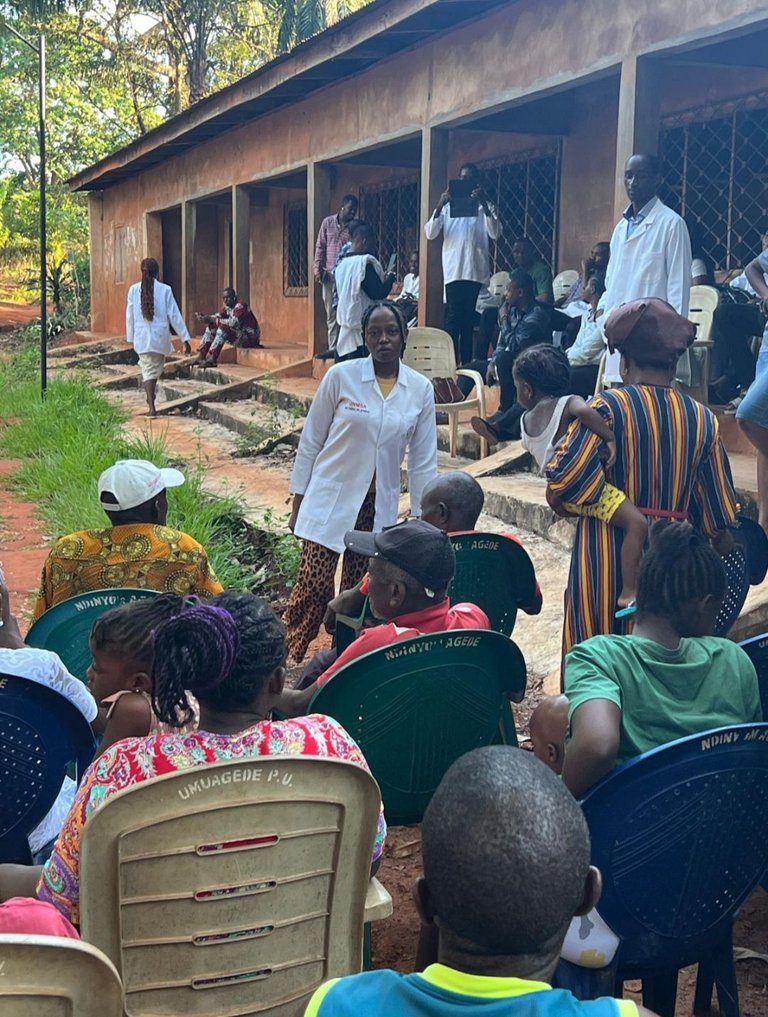
They were villagers with little or no formal education so we needed to keep it simple without the use of medical jargons...
We gave them the most common symptoms which includes headache, cold, intermittent fever worst at night and loss of appetite with consequent easy satiety.
For the treatment:
we urged them to stop the mixing of drugs they always request from the chemist shops / patent dealers but rather to try as much as possible to buy a full card of any Artemisinin Combination Therapy for malaria of their choice.
Finally to come to the hospital if after 2days of treatment and there are no relief at all.
For the prevention;
we urged them to get to any Federal health center and request for insecticides treated mosquito net and it will be given to them.
We also told them to reduce the breeding sites around their vicinity by putting to a stop to stagnant waters and if they can't, they should sprinkle oils over the water so that the larvae of these mosquitoes die of dessication.
From our interactions with the villagers, we discovered that most of them saw typhoid fever and malaria as the same thing, so to say that whoever is treating malaria is also taking medications for typhoid fever.
We started by correcting this mindset and always urged them to visit the medical laboratories before they start treatment as both diseases aren't the same at all, they don't even have the same causative organisms ( parasites for malaria and bacteria for typhoid fever)
For the symptoms;
High fever, abdominal pain, bloating or constipation, loss of appetite, diarrhea too.
For the treatment:
we urged them to stop taking the herbal mixtures they take whenever they suspect they have typhoid fever because most of them have nephrotoxic effects and will cause a problem in the long run.
An Antibiotic is all you need whenever you're suffering from typhoid fever, however, we told them not to abuse them because of drug resistance as most of them already abuse chloramphenicol.
For prevention:
We urged them to always make sure their hands are clean before they use them for any food preparation and also to boil their foods properly before eating.
Also, to boil their water adequately or give other forms of treatment before using them.
Sore throat on its own is not a challenge at all but, the main issue comes with inappropriate treatment, do you know why?
This is because If it was caused by Group A beta-hemolytic streptococcus organism or other bacterias, it has the tendency of developing into Acute glomerular nephritis just 2years after the sore throat.
It also has the tendency of developing into Rheumatic feverand subsequently Rheumatic heart diseases.
Cardiac diseases treatment are quite costly and because of that, we told them to always ensure they treat sore throats properly.
If it was caused by parvoviruses or other viruses, it could be self limiting (resolve on its own) without any sequelae but rather than leaving it to fate, why not get yourself and your children properly treated.
For the symptoms;
It is characterized by increased frequency of bowel movements (defecation) or rather change in consistency of faeces.
Some of these conditions could be normal in children such as toddlers diarrhoea whereas others could be pathological.
For the treatment:
Most times when people are suffering from diarrhea, their main focus is always on medications (antibiotics and anti-motility drugs like loperamide) but in reality, 90% of the deaths from diarrhea was as a result of dehydration.
This is because with increased frequency of stooling, you are constantly loosing fluids and without replacement, dehydration sets in and then death.
That is why we told them to always drink plenty of water and if possible desist from the various medications they take as it's almost not necessary.
This was our oral question in the just concluded exam, so we definitely had a lot to say here.
This was another area we stressed on because these deaths are 100% preventable and obstetricians will always tell you it's a taboo for a woman to die under their watch irrespective of the time of presentation.
We started by making them know what exactly is the WHO definition which went like this...
Maternal mortality is the death of a pregnant woman during pregnancy, at birth or 42days after termination of pregnancy (puerperium period) or from the management of her pregnancy irrespective of the site and duration of the pregnancy and from causes aggravated by the pregnancy but not from incidental or accidental causes....
For the prevention;
We urged them to always take their antenatal care visits seriously and never to joke with their routine drugs.
Most importantly, we made them understand that Caesarean section is not a death sentence nor does it make you less a woman because most of them ended up dying in a maternity when they were told by the doctor that the route of their delivery all things considered should be by caesarean section but they wanted to deliver like Hebrew women
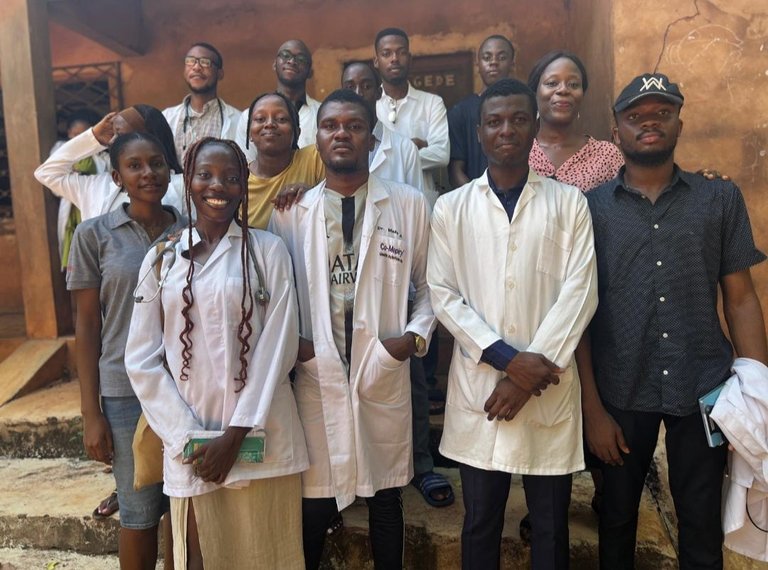
That was the end! It took us 3 different days to conclude though.
I hope you learnt something new
https://patient.info/travel-and-vaccinations/malaria-leaflet
https://www.who.int/news-room/fact-sheets/detail/maternal-mortality
https://www.healthline.com/health/sore-throat
https://my.clevelandclinic.org/health/diseases/4108-diarrhea
ALL PICTURES ARE MINE
Thanks for reading and have a nice day
This post has been manually curated by @bhattg from Indiaunited community. Join us on our Discord Server.
Do you know that you can earn a passive income by delegating to @indiaunited. We share more than 100 % of the curation rewards with the delegators in the form of IUC tokens. HP delegators and IUC token holders also get upto 20% additional vote weight.
Here are some handy links for delegations: 100HP, 250HP, 500HP, 1000HP.
100% of the rewards from this comment goes to the curator for their manual curation efforts. Please encourage the curator @bhattg by upvoting this comment and support the community by voting the posts made by @indiaunited.
Thanks
Thanks for your contribution to the STEMsocial community. Feel free to join us on discord to get to know the rest of us!
Please consider delegating to the @stemsocial account (85% of the curation rewards are returned).
You may also include @stemsocial as a beneficiary of the rewards of this post to get a stronger support.
I've delegated
Thanks for the support